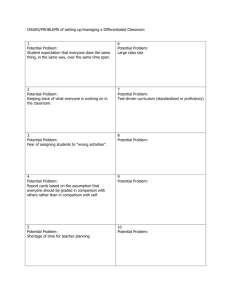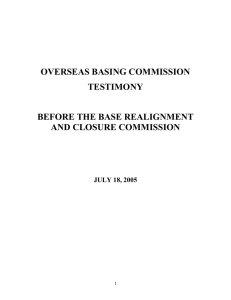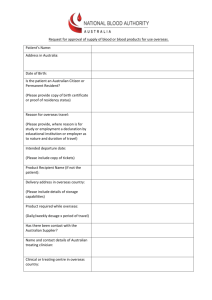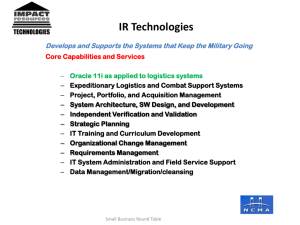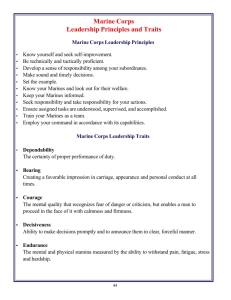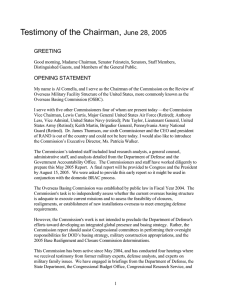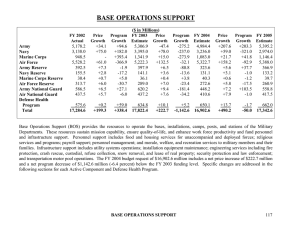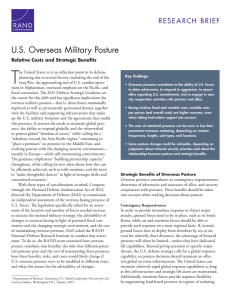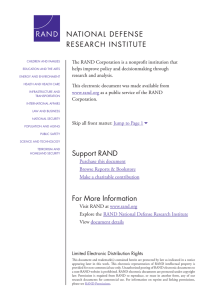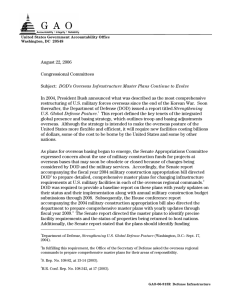OVERSEAS BASING COMMISSION Major Conclusions and Recommendations
advertisement
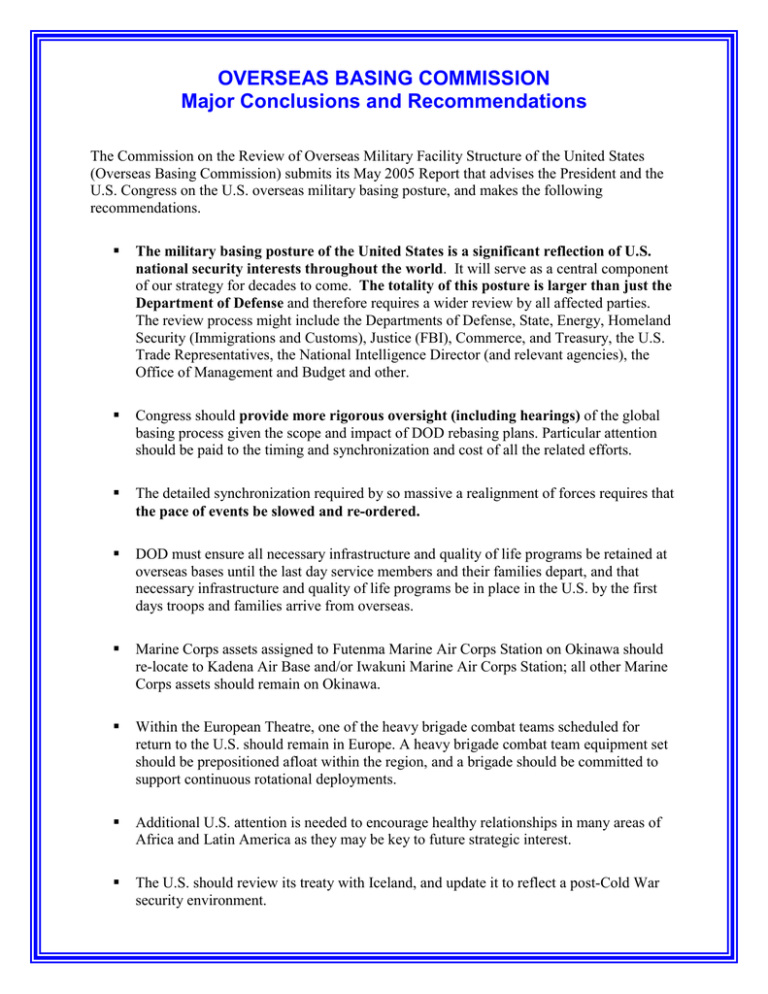
OVERSEAS BASING COMMISSION Major Conclusions and Recommendations The Commission on the Review of Overseas Military Facility Structure of the United States (Overseas Basing Commission) submits its May 2005 Report that advises the President and the U.S. Congress on the U.S. overseas military basing posture, and makes the following recommendations. § The military basing posture of the United States is a significant reflection of U.S. national security interests throughout the world. It will serve as a central component of our strategy for decades to come. The totality of this posture is larger than just the Department of Defense and therefore requires a wider review by all affected parties. The review process might include the Departments of Defense, State, Energy, Homeland Security (Immigrations and Customs), Justice (FBI), Commerce, and Treasury, the U.S. Trade Representatives, the National Intelligence Director (and relevant agencies), the Office of Management and Budget and other. § Congress should provide more rigorous oversight (including hearings) of the global basing process given the scope and impact of DOD rebasing plans. Particular attention should be paid to the timing and synchronization and cost of all the related efforts. § The detailed synchronization required by so massive a realignment of forces requires that the pace of events be slowed and re-ordered. § DOD must ensure all necessary infrastructure and quality of life programs be retained at overseas bases until the last day service members and their families depart, and that necessary infrastructure and quality of life programs be in place in the U.S. by the first days troops and families arrive from overseas. § Marine Corps assets assigned to Futenma Marine Air Corps Station on Okinawa should re-locate to Kadena Air Base and/or Iwakuni Marine Air Corps Station; all other Marine Corps assets should remain on Okinawa. § Within the European Theatre, one of the heavy brigade combat teams scheduled for return to the U.S. should remain in Europe. A heavy brigade combat team equipment set should be prepositioned afloat within the region, and a brigade should be committed to support continuous rotational deployments. § Additional U.S. attention is needed to encourage healthy relationships in many areas of Africa and Latin America as they may be key to future strategic interest. § The U.S. should review its treaty with Iceland, and update it to reflect a post-Cold War security environment.

